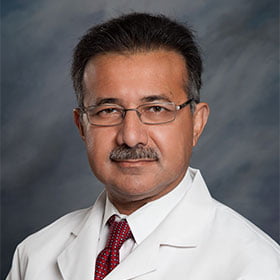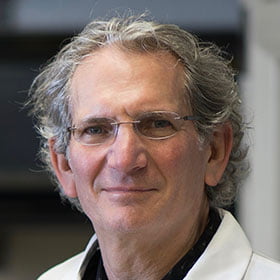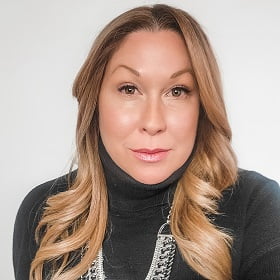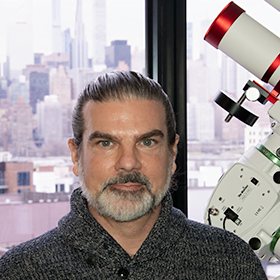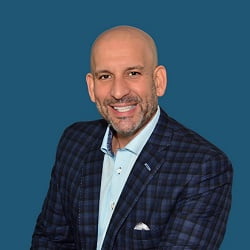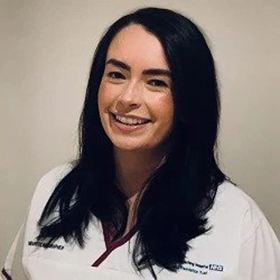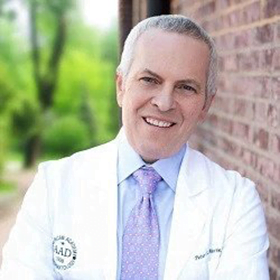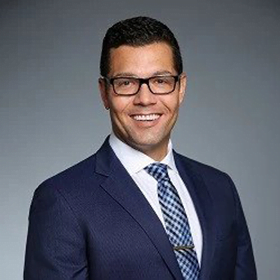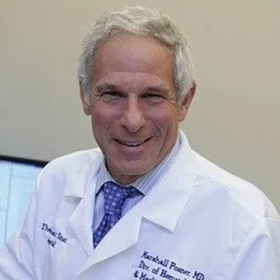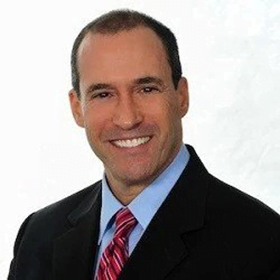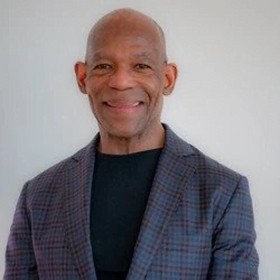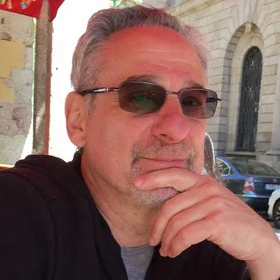Highlights from the Interview
Anal Cancer Patients Did Not Necessarily Have Anal Sex
Just because you’ve had anal cancer doesn’t mean you’ve had anal sex or that you are promiscuous. You don’t have to have anal sex. Whether you’re a straight man, or a woman, or a gay man, you can autoinfect yourself. You can have no HPV in your cervix for many years, yet it can still be in your anal canal. You may never have had a lesion on your penis that you know of or in your cervix, and yet, it’s in your anal canal.
Anyone Can Get Anal Cancer, Including Heterosexual Men
In terms of numbers, women have the highest incidence of anal cancer, then gay men (men who have sex with men), then immunosuppressed men and women, and then the lowest is probably heterosexual men, but it’s clearly not zero. We see anal cancer in a fair number of heterosexual men. Oftentimes they are totally embarrassed or humiliated because they’ve never had anal sex, and they don’t know how they got it.
Most HPV Infection Is Not Symptomatic
Most HPV infection is not symptomatic. So you can’t know when or how you got it. HPV doesn’t mean infidelity. It’s important to understand this. There are latent infections that develop all of a sudden. Suddenly, you have an infection.
Anal Cancer Is Relatively Curable
But the fact of the matter is just because someone tells you you have HPV 16 or 18 in your anal canal or cervix, it does not mean you’re destined to get cancer or die.
If you do get cancer, the treatment is rough, but it has very good potential to be curative. Keep your mind on that prize as you are going through treatment and get the help you need from your doctor. Make sure they hear you if you’re in too much pain; if you have open wounds, get help. It’s most important that you be your own advocate so that you can get through the treatment.
We Don’t Know Why One Person with High-risk HPV Gets Cancer And Another Doesn’t
We think it’s something like, for example, HPV 16 causes the cells to reproduce uncontrollably, mutations accumulate, and the body doesn’t kill the bad cells. It can just be bad luck. It’s like any cancer. Who knows why someone gets pancreatic cancer and someone else does not? Mutations are constantly showing up in all the organs of our body irrespective of being invaded with HPV. We don’t fully know why people get HPV cancers.
Anal Cancer Survivors Who No Longer Have HPV in Their Anal Canal Are Probably Less Likely To Get A Recurrence after Treatment.
Women and men with anal cancer who have chemoradiation or local surgery and no longer test positive for HPV are probably in a much better position than people who go through all the treatments, but the tests still come back positive for HPV. I think that after anal cancer people need to have HPV testing and anal cytology to make sure the cells aren’t changing, and they should have high-resolution anoscopies to make sure there’s no local high-grade recurrence. You need to treat dysplasia to keep it from going out to cancer.
People used to say that once you hit 5 years, you’re free and clear. It isn’t necessarily so if the HPV is still there.
Dr. Goldstone Calls for Treating Anal Dysplasia to Prevent Anal Cancer
My career has been very much devoted to finding ways to treat anal dysplasia. I believe it should be treated to prevent anal cancer. And if you’re following up after anal cancer, you also have to look for high-grade dysplasia and treat it. My guess is that patients who have anal cancer had high-grade dysplasia first.
There should also be more testing for anal HPV in people who are at high risk for anal cancer. People who have had cervical, vaginal or vulvar dysplasia, people who have had prior cancer, or people who are immunosuppressed or on immune therapy should have a swab to see if they have anal HPV. And if they do, they should have a high- resolution anoscopy and be followed more closely.
FULL INTERVIEW
What’s the most important thing anal cancer patients and survivors should know?
The thing I want to say most importantly is that just because you’ve had anal cancer doesn’t mean you’ve had anal sex or that you are promiscuous. You don’t have to have anal sex. Whether you’re a straight man, or a woman, or a gay man, you can autoinfect yourself. You can have no HPV in your cervix for many years, yet it can still be in your anal canal. You may never have had a lesion on your penis that you know of or in your cervix, and yet, it’s in your anal canal.
Most HPV infection is not symptomatic unless it starts causing a problem. So that’s how people say these things like “oh, someone cheated on me” or “this is impossible,” but it’s not impossible and it doesn’t mean someone cheated.
Having HPV is not a reason to have protected sex. If you’ve been together for years, whatever one person has so does the other. But whatever one person in a couple has, the other one also has it.
I think not for our generation, but for generations going forward from now, my children’s generation etc, it’s a whole different ball game because of the vaccine. The thing is we are all worried about high-risk HPV, especially HPV 16 and 18 which cause most of the cancers. They don’t cause all the cancers, but they do cause most. But the fact of the matter is just because someone tells you you have HPV 16 or 18 in your anal canal or cervix, it does not mean you’re destined to get cancer or die.
So, do heterosexual men get cancer?
Pure Numbers-wise women have the highest numbers of anal cancer, followed by gay men (men who have sex with men), then immunosuppressed men and women and then the lowest is probably heterosexual men, but it’s clearly not zero. We see anal cancer in a fair number of heterosexual men. Oftentimes they are totally embarrassed or humiliated because they’ve never had anal sex and they don’t know how they got this.
Do you know why some people with HPV 16 get cancer and others don’t?
We don’t know yet. It’s something like HPV 16 causes the cells to reproduce uncontrollably, mutations accumulate, and the body doesn’t kill the bad cells. It can just be bad luck. It’s like any cancer. Who knows why someone gets pancreatic cancer and someone else doesn’t? Mutations are constantly showing up in all the organs of our body irrespective of being invaded with HPV. We don’t know why. We know people who are immunosuppressed are at greater risk. There are so many reasons to be immunosuppressed, if you had a transplant or are taking biologics for rheumatologic problems, that kind of thing. No one knows.
Is the HPV infection always there but dormant or does it fully clear in some people?
We don’t know. Probably both.
In some people it can clear completely and in others remain dormant and then can suddenly change and reactivate. So, there’s much that is not known.
HPV doesn’t mean infidelity. It’s important to understand this. There are latent infections that develop all of a sudden. Suddenly, you have an infection.
How should anal cancer survivors be followed up?
There definitely are recurrent cancers in anal cancer. Sometimes it’s because it has already spread, or the treatment wasn’t successful enough to eradicate all the cells. So, there’s local recurrence and distant recurrence, spread. You find them differently. Local recurrence you find with rectal examinations Distant recurrence you find with a PET/CT. Clearly, the longer you are out from your primary cancer the less likely you are to get a local or distant recurrence. Colonoscopy is not the way to follow someone with anal cancer because it’s strictly in the anus.
The problem is new cancer. That’s a very real problem. What we do is women and men with anal cancer who have chemoradiation or local surgery and no longer test positive for HPV are probably in a much better position than people who go through all the treatments and the tests still come back positive for HPV. I think that after anal cancer people need to have HPV testing and anal cytology to make sure the cells aren’t changing and then they should have high resolution anoscopy to make sure there’s no local high-grade recurrence because you want to treat that to keep it from going on to cancer.
I typically see people for an HRA for 6 months, and if they are HPV negative, they can get checked every year. The key is whether or not there is HPV in the anal canal. If you have no HPV then you’re in much better shape than other people.
Should anal cancer survivors be getting screenings for oral cancer?
Unfortunately, there is no screening for oral cancer other than a good dental exam. If you have a persistent sore throat, see a doctor. Unfortunately, however, HPV caused oral cancer is usually caught when it’s spread to a lymph node. That’s the bad news; the good news is that oral cancer from HPV, just like anal cancer, has very high cure rates with chemotherapy and radiation. No one wants to get cancer, but if you have to get cancer, it has descent cure rates.
So you are linking recurrences with persistent HPV?
People used to say that once you hit 5 years, you’re free and clear. It isn’t necessarily so if the HPV is still there.
I took a quick look at your articles. I saw some articles about the lack of treatment of dysplasia.
My career has been very much devoted to finding ways to treat anal dysplasia. I believe it should be treated to prevent anal cancer. There is a study going on now called the Anchor Study which is designed to tell whether treatment does prevent progression of cancer in suitable numbers to make it worthwhile. Clearly, we treat a lot more dysplasia than people would ever get cancer, but just like in the cervix, a lot of women go for leeps when they never would have had cervical cancer. So, I believe that if you find anal precancer, you should treat it. And if you’re following up after anal cancer you also have to look for high grade dysplasia and treat it.
Are you saying dysplasia is not diagnosed enough or not treated enough?
Both. Dysplasia is both not diagnosed enough and not treated.
When you take out cancers and biopsy them, they often arise in areas of high-grade dysplasia. Even though the tumor may be the size of a robin’s egg, half of it may be cancer and half of it just high-grade dysplasia. Many doctors follow dysplasia by doing frequent digital rectal exams, but it’s exceedingly difficult to diagnose anal cancer when it’s small with this method.
So, you are saying that anal cancer patients had high-grade dysplasia initially. I was told I had had anal cancer for two years before diagnosis. Would you agree?
My guess is it started with high-grade dysplasia and then went on to cancer. My guess is you didn’t have anal cancer for the whole two years.
If somebody has dysplasia, do they have symptoms?
Oftentimes there are no symptoms. For a lot of people, we find it incidentally when we take a hemorrhoid out or if they have significant enough growth to see it in a colonoscopy.
If it’s on the outside, it can be itchy or sore or bleed. (I don’t want everyone who has an itchy bottom to think they have dysplasia. Usually, it’s not.
So, how would you sum up what you are advocating for?
I advocate that people who are at high risk for anal cancer should get checked for anal HPV.
People who have had cervical, vaginal or vulvar dysplasia, people who have had prior cancer, or people who are immunosuppressed or on immune therapy should have a swab to see if they have anal HPV. And if they do, they should have a high resolution anoscopy and be followed more closely.
Whose sexual partners should get anal swabs?
If men’s partners are other men, they should be tested. Not because one gave it to the other but because they have probably been infected from long before they met. For heterosexual couples, I wouldn’t tell a woman to have her husband get anal swabs, though.
How do you treat dysplasia?
We burn it; we are testing a new immune based therapy for it. Different things.
Who should get tested for dysplasia and HPV?
If their partners are other men, they should be tested. Not because one gave it to the other but because they have probably been infected from long before they met. They are probably infected long before they met each other. For heterosexual couples, I wouldn’t tell women to have her husband to get anal swabs. It’s not a reason to have protected sex. If you’ve been together for years, whatever on person has so does the other. But whatever one person in a couple has, the other one also has it. Just because HPV turns up for the first time it.
Is there anything else you think is important to know?
It’s most important that you be your own advocate. If you have pain or open wounds get help.
The treatment is rough, but it has very good potential to be curative. Keep your mind on that prize as you are going through it and get the help you need from your doctor. Make sure they hear you if you’re in too much pain; make sure you’re taken seriously because you need to get through it.





